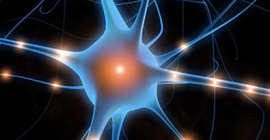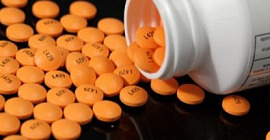A new study shows that empathy may drive rats to help each other. The finding gives insight into the biological roots of our urge to assist others in need. The model the researchers developed will also provide an opportunity for further study.
Empathy motivates us to take action. We feel distressed when another is suffering, and we want to stop it. Other primates like apes are also known to help each other when they perceive distress. Rats share the distress of other rats as well, but whether they would take the next step to assist a fellow rat in distress was unknown. Inbal Ben-Ami Bartal, Dr. Jean Decety and Dr. Peggy Mason at the University of Chicago developed a model to test whether rats would be driven by empathy to help each other.
For each hour-long test session, the scientists put pairs of rats together in cages. One rat roamed freely, and the other was restrained in a clear tube at the center of the cage. Each tube had a door that could be nudged open only from the outside by the free rat. on December 9, 2011.
After an average of 7 daily sessions, most rats learned how to quickly release the door to set their captive companion free. When the rat was first released, the scientists observed, the pairs raced around and explored the cage together. In contrast, free rats paid little attention to tube restraints that were empty or contained only a toy rat.
Even when the free rats were denied access to the liberated rat, the rats still opened the restrainer. This showed that the free rats weren’t opening the doors to have a playmate. Rather, they were opening the door specifically to release the trapped rat.
Get The Latest By Email
To test how much value the rats placed on liberating a trapped cagemate, the scientists presented rats with 2 restrainers—one with a rat inside and another containing 5 chocolate chips, a favorite rat snack. A free rat could choose to eat all the treats himself by opening the chocolate restrainer first or blocking the entrance to the chocolate restrainer. But the researchers found that the free rats opened the restrainers in no consistent order and allowed their liberated cagemates an average of 1. 5 chips. When an empty restrainer was paired with a chocolate-containing one, the free rats ate all 5 chocolates.
That was very compelling,” Mason says. It said to us that essentially helping their cagemate is on a par with chocolate. He can hog the entire chocolate stash if he wanted to, and he does not. We were shocked.
This is the first evidence of helping behavior triggered by empathy in rats,” Decety says. The researchers are now using this model to explore further questions, such as whether the role of empathy in motherhood might make females more likely to become door openers than males.
All of this tells us that acting on empathic feelings to help another in need is a biological and in fact a neurobiological mandate,” Mason says. It’s in our brain. by Harrison Wein, Ph. D.
- Human See, Human Do?
http://www. nih. gov/researchmatters/august2009/08172009imitation.
http://nccam. nih. gov/research/results/spotlight/060608.
Article Source:
http://www.nih.gov/researchmatters/december2011/12192011empathy.htm










